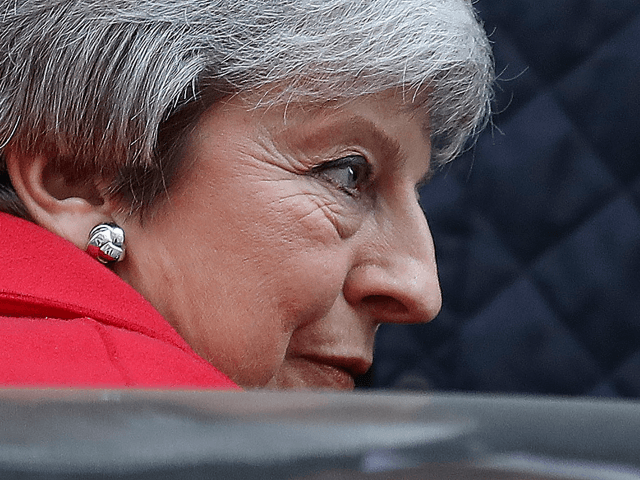Prime Minister Theresa May has paved the way for Europhile MPs to stop the UK leaving the EU in a clean break and to delay the Brexit date.
Mrs May has said that should the House of Commons not back her Withdrawal Agreement in the second ‘meaningful vote’ scheduled for March 12th, she will allow MPs in the Remain-dominated lower house of Parliament to vote on whether it backs the UK leaving the EU without a deal — an already-agreed legal default position if London does not come to a deal with the Brussels by March 29th.
The prime minister also said that should the House vote down her bill and later vote against leaving without a deal, Parliament will be asked to vote on a “short” extension to Article 50, the legal mechanism for leaving the EU.
The decision to allow the possibility of two votes in the House of Commons that could delay the country’s exit from the bloc came after reports in the media that Mrs May was being pressured to make the concessions by her own Remainer Cabinet ministers.
During a statement in the House of Commons on Tuesday afternoon, Mrs May said that she would make three “commitments”:
“First: we will hold a second meaningful vote by Tuesday the 12th of March at the latest.
“Second, if the Government has not won a meaningful vote by Tuesday the 12th of March, it will, in addition to its obligations, table a neutral, amendable motion under section 13 of the EU Withdrawal Act by Wednesday the 13th of March at the latest asking this House if it supports leaving the EU without a Withdrawal Agreement and without a framework for a future relationship on March 29th.
“So the UK will only leave without a deal on the 29th of March if there is explicit consent in the House for that outcome.
“Third, if the House, having rejected leaving with the deal negotiated with the EU, then rejects leaving on the 29th of March without a Withdrawal Agreement and future framework, the government will by the 14th of March bring forth a motion on whether Parliament wants to seek a short, limited extension to Article 50, and if the House votes for an extension, seek to agree that extension approved by the House with the EU and bring forward the necessary legislation to change the exit date commensurate with that extension” to a date estimated to be mid-June.
While Mrs May maintains that she would rather her Agreement be passed and “does not want to see an extension to Article 50” and that “a short extension would have to be a one-off,” she will face backlash from Brexiteer MPs over what will be seen as a betrayal of the June 2016 referendum, and pledges by the prime minister that the country will leave on March 29th.
After the statement, chairman of the European Research Group (ERG) Jacob Rees-Mogg MP told Sky News that if the delay is a plot to stop Brexit, he said it would be the “most grievous error that politicians could commit. It would be overthrowing a referendum result, two general elections — one to call the referendum, one to endorse the referendum — and would undermine our democracy.”

COMMENTS
Please let us know if you're having issues with commenting.